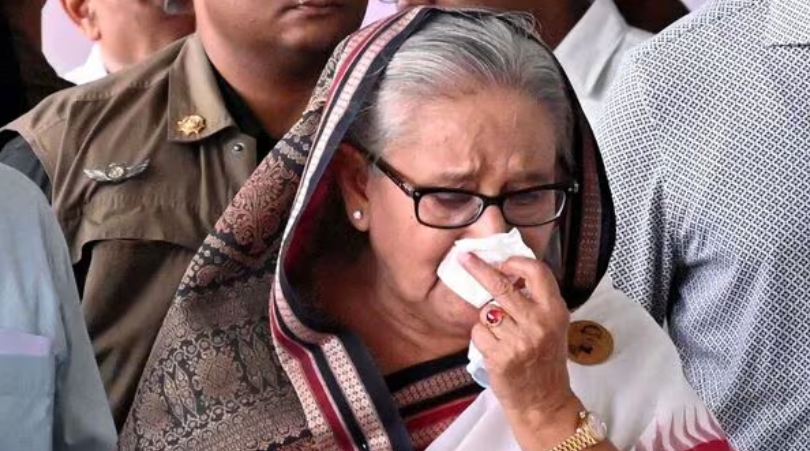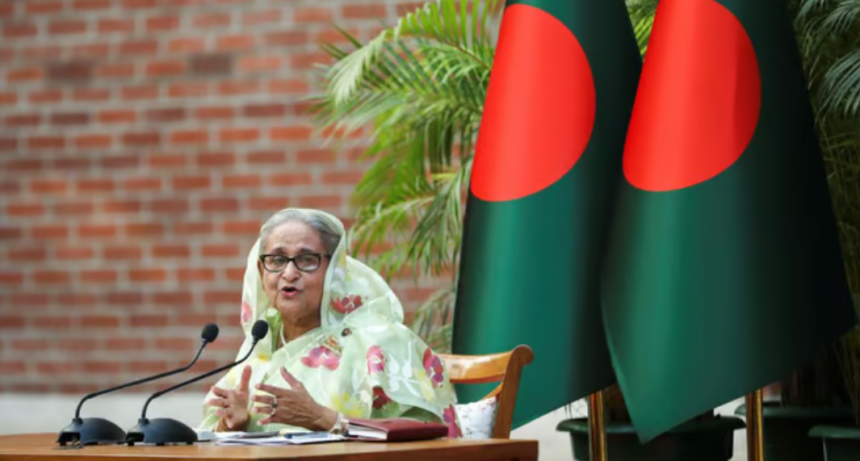In an unprecedented turn of events, Sheikh Hasina, Bangladesh’s longest-serving Prime Minister, has fled the country amidst escalating protests and civil unrest. The Prime Minister was airlifted from Dhaka and has landed at the Hindon Air Force Station near Delhi, India. Seeking asylum in the United Kingdom, Sheikh Hasina’s abrupt departure has left the nation in turmoil, with an interim government set to take over according to the Army chief. The situation in Bangladesh remains tense as protesters have stormed the Prime Minister’s residence, defying a curfew order imposed by the government. This dramatic development marks a significant moment in the nation’s political landscape. 
The Rising Unrest
For weeks, Bangladesh has been grappling with a wave of protests that have swept across the country. The public’s discontent has been fueled by a multitude of issues, including economic hardship, allegations of corruption, and accusations of authoritarianism against the ruling party. The protests began as peaceful demonstrations but quickly escalated into widespread unrest, with clashes between protesters and security forces becoming a daily occurrence.
The tipping point came when a series of corruption scandals involving high-ranking officials within Sheikh Hasina’s administration came to light. These revelations ignited a firestorm of anger among the populace, leading to mass mobilizations demanding the Prime Minister’s resignation. Despite repeated calls for calm and promises of reform, the government’s response was perceived as inadequate and insincere, further exacerbating the situation.
Sheikh Hasina’s Departure
As the protests grew in intensity, it became increasingly clear that the situation was spiraling out of control. In a bid to restore order, the government imposed a curfew, hoping to quell the unrest. However, the move backfired spectacularly, with protesters defying the curfew en masse and taking to the streets in even larger numbers.
Facing an imminent threat to her safety and unable to regain control of the situation, Sheikh Hasina made the decision to leave the country. In a covert operation, she was airlifted from Dhaka and flown to India, where she landed at the Hindon Air Force Station near Delhi. The Indian government, in coordination with international authorities, facilitated her safe passage, and she is now seeking asylum in the United Kingdom.
Interim Government Takes Over
With Sheikh Hasina’s departure, Bangladesh’s Army chief announced that an interim government would be established to restore order and oversee the transition of power. The interim administration, comprising representatives from various political factions and civil society, is tasked with addressing the immediate crisis and paving the way for new elections.
The Army chief’s statement emphasized the need for unity and cooperation in these challenging times. “The nation stands at a critical juncture,” he said. “It is imperative that we come together to ensure a peaceful and orderly transition. The interim government will work tirelessly to address the concerns of the people and restore stability.”
Protests Escalate
Despite the announcement of an interim government, the protests have shown no signs of abating. In a bold and defiant move, protesters stormed the Prime Minister’s residence, occupying the grounds and demanding further concessions. The storming of the residence marked a significant escalation in the protests, underscoring the depth of public anger and frustration.
The protesters, a diverse coalition of students, workers, and civil society activists, have issued a series of demands, including the immediate release of political prisoners, accountability for corruption, and the establishment of a truly democratic political system. They have vowed to continue their demonstrations until these demands are met.
International Reactions
The international community has been closely monitoring the situation in Bangladesh, expressing concern over the unfolding crisis. The United Nations and several countries, including the United States and the European Union, have called for restraint and dialogue. In a joint statement, they urged all parties to prioritize the welfare of the people and work towards a peaceful resolution.
India, having facilitated Sheikh Hasina’s departure, has expressed its willingness to support Bangladesh during this turbulent period. In a statement, the Indian government reiterated its commitment to maintaining peace and stability in the region. “We stand with the people of Bangladesh in their pursuit of democracy and justice,” the statement read.
The Road Ahead
Bangladesh now faces an uncertain future as it navigates this complex and volatile situation. The establishment of an interim government is a crucial first step, but the challenges ahead are immense. The interim administration must address the immediate concerns of the protesters while also laying the groundwork for long-term political and economic reforms.
One of the key tasks will be to organize free and fair elections, ensuring that the voices of all citizens are heard. This will require significant cooperation and compromise among the various political factions. The interim government will also need to tackle the underlying issues that have fueled the protests, including corruption, economic inequality, and human rights abuses.
Voices from the Ground
Amidst the chaos, the voices of ordinary Bangladeshis offer a poignant reminder of the human impact of these events. Many citizens have expressed a mixture of hope and apprehension about the future. “We have been through so much,” said one protester. “But we cannot give up now. We must fight for our rights and for a better future.”
Others have emphasized the need for unity and reconciliation. “This is a time for healing,” said a community leader. “We must come together as a nation and work towards a common goal. Only then can we achieve true progress.”
Conclusion
The dramatic departure of Sheikh Hasina from Bangladesh marks a turning point in the nation’s history. As the country grapples with the aftermath, the road ahead will be fraught with challenges. However, the resilience and determination of the Bangladeshi people offer a glimmer of hope. With the support of the international community and a commitment to genuine reform, Bangladesh has the opportunity to emerge stronger and more united from this crisis.
The establishment of an interim government is a critical step towards restoring stability, but it is only the beginning. The journey towards a more democratic and just society will require sustained effort and dedication from all sectors of society. As the world watches, Bangladesh stands at a crossroads, with the potential to shape a brighter future for its people.
In the coming days and weeks, the actions of the interim government and the response of the protesters will be crucial in determining the nation’s path forward. The international community must continue to offer support and encouragement, emphasizing the importance of dialogue, compromise, and respect for human rights.
Ultimately, the people of Bangladesh hold the key to their own destiny. Their courage and resolve in the face of adversity are a testament to their strength and resilience. As they navigate this challenging period, they do so with the hope and determination that a better future is within reach. ALSO READ:- Boxers Lovlina and Nishant Bow Out in Quarterfinals: A Heartbreaking Exit 2024





